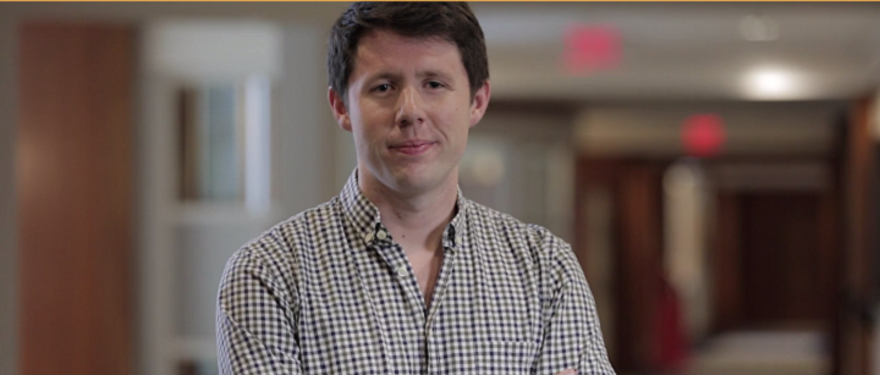We recently sat down with entrepreneur and HBS alumnus Robb Fitzsimmons (MBA 2016) to talk about the new MS/MBA: Engineering Sciences Program - and the ways it will benefit future leaders of technology ventures. Here's what he had to say.
Would you have applied to this program? Do you think the technical SEAS programming would have been a value add to your MBA?
"I think the technical programming would have added huge value. Many of the methods in data science and machine learning that I'm applying in my work had evolved significantly since I was in college, and having the time and resources to learn "outside the job" would be really helpful. I actually considered applying to a SEAS master's program during my RC year, but without a program like this it was hard to coordinate schedules and requirements. I'm very glad the two schools have gotten together to meet this need, because there were plenty of technical MBAs I spoke to who wanted the same mix of experiences during their time at Harvard."
How do you think a program like this will help to position graduates as future leaders of technology ventures?
"Ultimately, having an impact in technology comes from more than creating elegant solutions to problems. Your work is most satisfying when it's in the hands of real users who are benefitting from it - and ideally paying you for it!
I think I understood this in the abstract at my first company, but I didn't have a rigorous framework for defining and validating the products I was trying to create for users. That led to more frustration than was probably necessary on my part, and it took longer than necessary to meet customers' needs.
The curriculum across the MBA is the result of decades of thinking critically about how to build products and companies better. Someone with a background and orientation towards building things can incorporate that knowledge into their work and get tremendously more effective as a founder or leader.
In particular design thinking and lean-startup methods, which are spread everywhere throughout the curriculum, are frameworks I now think about all the time in my work, and it's a night-and-day difference in how effective I am with my teammates and customers."
What do you think the benefits are to being in the Boston tech ecosystem when launching a venture?
"I've probably got a bit more 'Boston' experience than most MBAs - I lived in Boston for eight years between my undergrad, my MBA, and starting a company in between. At various points in those eight years, I worked with groups in and around SEAS and the Media Lab at MIT. It's got an embarrassment of riches in terms of smart, technical people to collaborate with.
Boston isn't the Valley for consumer or New York for enterprise tech, but it's very frequently where the biggest names in those cities got the skills that helped them build their companies. (Which is what you'd be here to do, too.) On the other hand, if you're interested in really hard technical problems - robotics, biotech, AI - Boston is the place to be.
I think the bottom line is, being at Harvard means you're situated between several of the best institutions to learn and build on the planet. You can take what you're building here and go anywhere - including staying, if you want to - and know you'll have world-class resources."
What advice do you have for someone considering applying to this program?
"I think there's a lot of angst - and certainly I felt it - about "taking two years away" during a time when the tech industry is changing so rapidly. There's a worry that it's too long away from developing technically, from high-potential companies you could join early, from the network you're trying to build.
In terms of the network and job opportunities, HBS was much better than being out working on a company for me - it's a strong community that's intentional about helping each other, and some of the very biggest names in technology are here all the time in cases or to meet you. This new joint degree program, in explicitly giving you time to develop technically, removes that last worry I had.
So, my advice would be "go for it" - apply, visit the campus and some of the entrepreneurship classes, ask to be introduced to technical MBAs who are already here, and judge for yourself. Judge on the basis of what you know you'll be gaining, rather than being worried about missing out on some unknown in your industry while you're "gone.""
For additional information about the program, please visit the MS/MBA: Engineering Sciences website.

